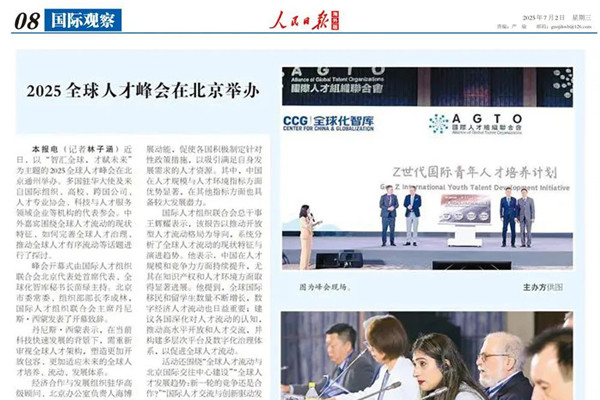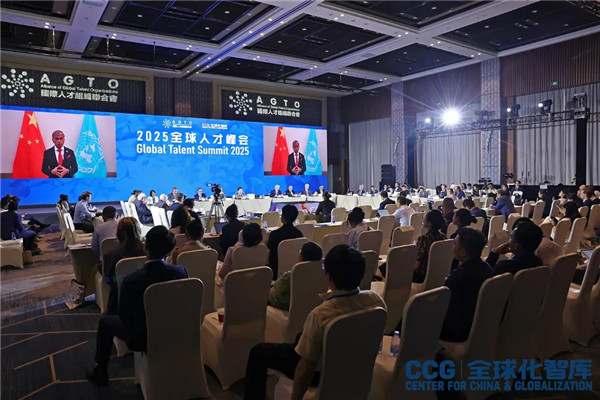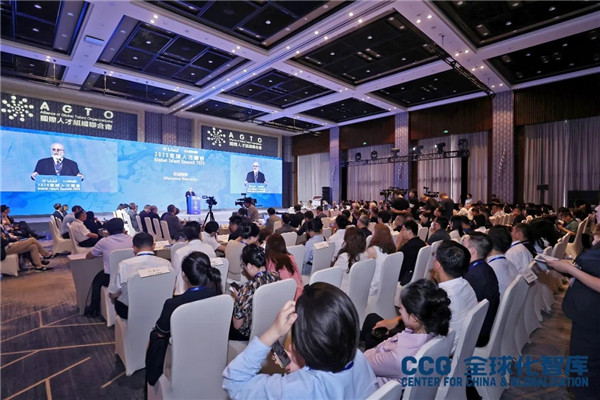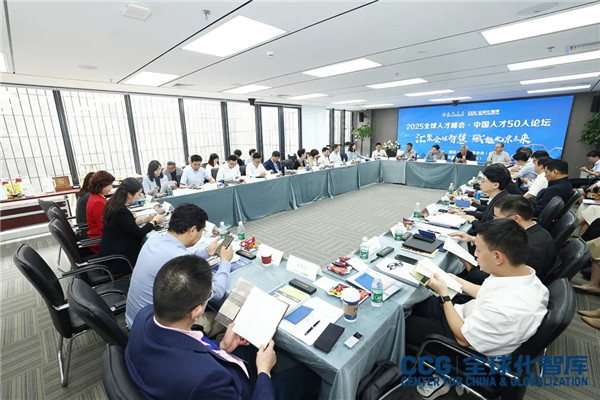[sino-us] Being labeled ‘rival’ by Trump may not be a bad thing for China
2018年2月5日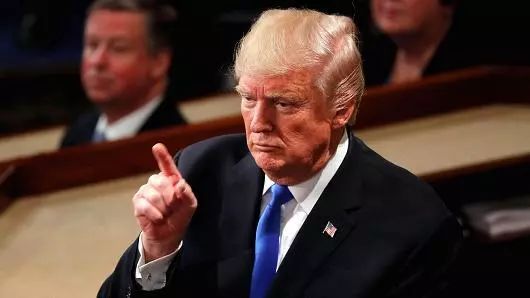
President Donald Trump speaking at the State of the Union address at the US Capitol in Washington, DC, on January 30, 2018. Photo: Reuters
US President Donald Trump has referred to China as a rival and pledged to end an era of economic surrender in his first State of the Union address on Wednesday (Beijing time). But a Chinese expert has said calling China a “rival” may not be totally bad for China as it is undergoing deep economic reform.
“Labeling China a ‘rival’ may not be a bad thing for China,” said Teng Jianqun, director of the Department of American Studies at the China Institute of International Studies and senior researcher of the Center for China and Globalization (CCG), a think tank based in Beijing.
“As China is undergoing deep economic reform and transitioning toward a ‘new normal’, external motivation could be good for the country,” he said, adding though that it could also bring pressure to China.
During his address, Trump singled out China and Russia as rivals of the US that challenged US interests, economy and values.
"Around the world, we face rogue regimes, terrorist groups and rivals like China and Russia that challenge our interests, our economy and our values," Trump said in his maiden State of the Union address.
Calling China a "rival" was in line with the US national security strategy he unveiled in December, which reflected a harder line toward China, according to Teng, who said it also indicates the US government is undergoing “the biggest strategic transformation since the Cold War,” though the outcome remains uncertain.
Relations between the world’s two largest economies are becoming tense as the US prepares to unveil the results of a probe into alleged Chinese intellectual property theft, which could result into a big "fine," Trump said.
While Trump was expected to send strong warnings to countries about unfair trade practices, including stealing intellectual property and providing state aid to their industries, his comments on trade during the speech were restricted to three sentences in which he repeated that "fair and reciprocal" trade was necessary, without elaborating.
"We will work to fix bad trade deals and negotiate new ones," Trump said, adding "We will protect American workers and American intellectual property, through strong enforcement of our trade rules."
The Trump administration has repeatedly accused China of trade abuses since the presidential campaign in 2016, and has threatened to take protectionist trade actions against Chinese exports to the US. But according to another Chinese expert, it could only be a “political card” that Trump plays in order to win over more supporters.
“Talking about trade deficit can help gain American people’s attention, making them feel that it is Chinese who had stolen their jobs. It is politically tenable,” said He Ning, a senior researcher of the CCG. “Data on trade deficit only reflects the direction of trade, but does not indicate profit allocation between the two countries.”
Trump announced last week that the US would slap tariffs of up to 30 percent on imports of Chinese solar panels, and is also considering broad tariffs or quotas on steel and aluminum following investigations by the US Department of Commerce into whether rising steel and aluminum imports represent a threat to national security.
While this has led many to wonder whether a “trade war” would break out between the two countries, He said it’s necessary to be clear about what a “trade war” means in the first place.
“If a ‘trade war’ is defined as measures like imposing anti-dumping duties or punitive tariffs, China and the US are in ‘trade war’ every year without exception,” he said, adding he doesn’t think “a ‘trade war’ that could bring huge adverse impact on both countries would happen,” thanks in part to multilateral trade agreements and rules.
Meanwhile, “it is also necessary to be cautious about overreaction when dealing with the actions taken by the other side,” He warned.
“In my conversations [with] the Chinese government, I feel there is going to be a restrained, yet reciprocal response to any action that the US takes. I don’t sense the Chinese government will escalate, necessarily. So as a result, hopefully that will allow a moderation [of] any kind of retaliation on both sides,” Jacob Parker, a vice president at the US-China Business Council in Beijing, told the sino-us.com on Wednesday.
“Our companies hope that there will be no trade war between the US and China. A trade war is beneficial to no one. It will harm US companies and Chinese companies, and most of all, it will harm the US consumers, due the prices rise when tariffs are imposed,” Parker said.
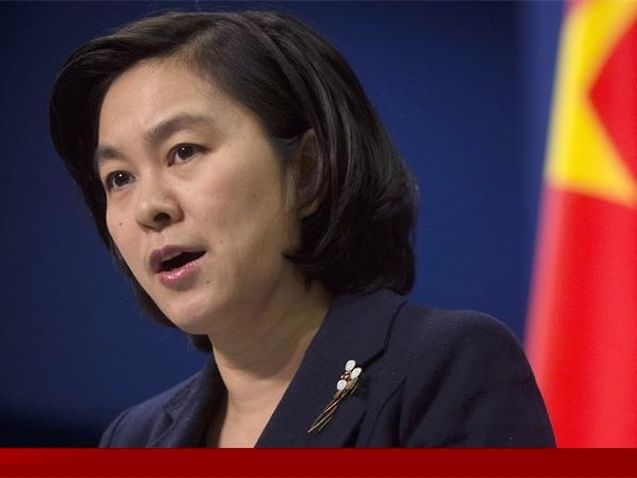
Chinese Foreign Ministry spokeswoman Hua Chunying says the US seems stuck in a Cold War mindset. Photo: AP
Despite the tense outlook of bilateral trade relations, a recent survey conducted by AmCham-China in partnership with Bain & Company showed that US companies are increasingly upbeat on China’s economy and US-China relations, with some 64 percent of the member companies reporting revenue growth in 2017, up from 58 percent in 2016 and 55 percent in 2015.
‘Cold War mentality’
In response to Trump’s labeling of China a “rival”, Hua Chunying, Chinese foreign ministry spokesperson, said on Wednesday that the US should abandon its Cold War mentality and outdated concept of zero-sum game, and view China and China-US relations in a correct way.
"We hope the United States will meet China halfway, respect each other, focus on cooperation, and control differences, to maintain a healthy and stable growth in bilateral ties," Hua told a routine press briefing in Beijing.
The two countries have broad common interests and some differences as well, she said, adding their common interests far outweigh differences.
"History and facts prove that cooperation is the only correct choice for both sides. Mutual benefit leads to a better future," Hua said.
Hua’s comments were echoed by Gao Feng, spokesperson of China’s Ministry of Commerce, who said in response to Trump’s address that the US should not “politicize” economic and trade issues between the two countries.
Gao said on Thursday that China “tends to see the US as our partner in trade area”, adding that fair trade should be based on international rules instead of unilateral standards.
China’s state-owned Xinhua News Agency also ran a commentary following Trump’s speech. Highlighting that “China will not block America’s pursuit of a ‘new moment’,” the commentary said “it is better for the United States to see China as a partner, rather than a rival, with a joint future rather than a divided one. China has contributed to the American dream, rather than destabilizing it.”
From sino-us,2018-2-1
